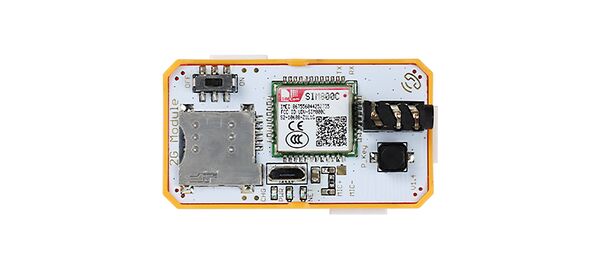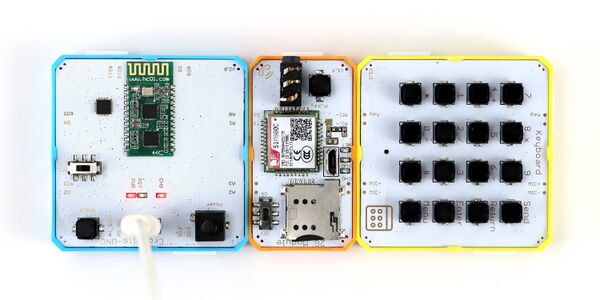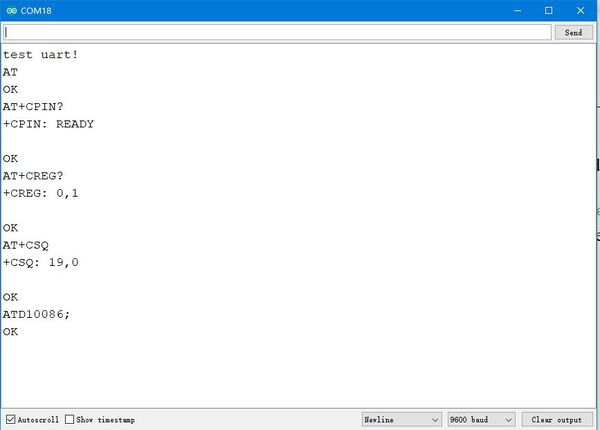Crowbits-2G Module
Description¶
Crowbits- OLED is constructed from 128 x 64 dot matrix OLED module. The display offers high brightness, self-emission, high contrast ratio, slim/thin outline, wide viewing angle, wide temperature range and low power consumption.
Features¶
- GSM
- Easy to use
Specification¶
- Interface Type: UART
- Operating Voltage: 3.3V DC
- Dimensions: 56(L)*31(W)*13(H)mm
Usage¶
The following sketch demonstrates a simple application of the module.
1. You need to prepare a Crowbits motherboard, such as Crowbits-UNO board. And Crowbits-Key Board module.
2. Connect the module to the D4 and D5 interface of the Crowbits-UNO board, and Crowbits-Key Board connect the MIC interface of the Crowbits-2G Module. As shown in the figure:
3. Upload the following code to the Crowbits-UNO board.
#include <SoftwareSerial.h>
SoftwareSerial mySerial(4, 5); // RX, TX
void setup() {
// Open serial communications and wait for port to open:
Serial.begin(9600);
while (!Serial) {
; // wait for serial port to connect. Needed for native USB port only
}
Serial.println("test uart!");
// set the data rate for the SoftwareSerial port
mySerial.begin(9600);
}
void loop() { // run over and over
if (mySerial.available()) {
Serial.write(mySerial.read());
}
if (Serial.available()) {
mySerial.write(Serial.read());
}
}
4. After the upload is successful, open the serial port monitor, the baud rate is set to 9600. Then send a command to call.
- AT return OK // The serial port connection is normal
- AT+CREG? Return +CREG: 0,1 // Indicates successful network registration
- AT+CSQ //Test signal strength
- ATD10086; //Call
- ATH // hang up the phone
- ATA // answer the phone


